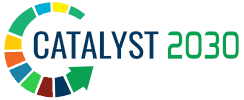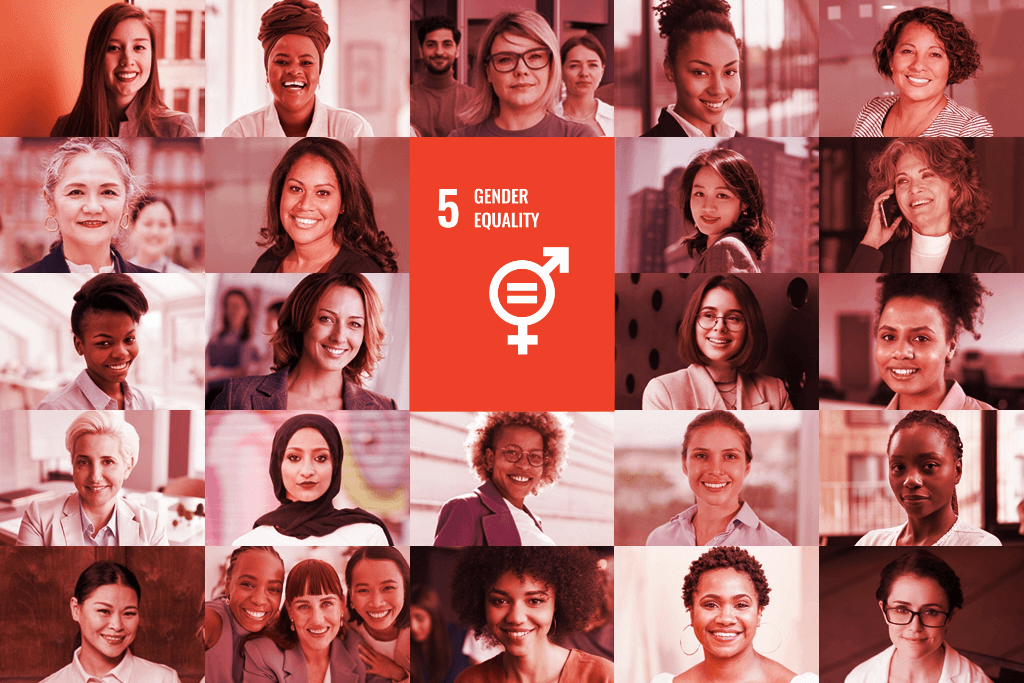Women entrepreneurs face unequal access to finance, networks and markets. These findings were published by UN Women and the United Nations Global Compact in Women’s Empowerment Principles: Covid 19 and the Future of Work (2020), which also revealed that women-owned businesses prioritised social and environmental impacts and are more likely to employ women and other marginalised groups.
Women social entrepreneurs are therefore vital to growing the social economy necessary for transforming society. Yet at the Catalyst 2030 International Women’s Day event which posed the question, “Is the Social Entrepreneur Sector Equitable for Women?,” the response from panellists and audience was a resounding, “No.”
This event was moderated by Melanie Edwards, Adjunct Professor of Social Entrepreneurship at Stanford University and included speakers Asmaa Rashed, Dr Gisela Solymos, Dr Christie Peacock and Gaby Aranes, who shared their stories as women social entrepreneurs.
Subtle discrimination
Dr Gisela Solymos described how, in spite of her achievements and credibility, she continues to experience gender inequality of the kind very familiar to women leaders, the “very subtle situations that are repeated over time, especially during fundraising negotiations with businessmen or men in political positions”.
Gisela holds a PhD in Social Psychiatry, is a Schwab Foundation Social Entrepreneur, an Ashoka Fellow and a NCDs Dialogue Series Steering Committee member of the World Economic Forum. She co-founded CREN (the Centre for Nutritional Recovery and Education), after a stint as part of a multi-disciplinary team investigating the socio-economic status of families living in 20 favelas in Sao Paulo. “The team developed a methodology to diagnose and treat child malnutrition which was soon replicated in other communities,” she explains. “Our disruptive multidisciplinary approach was groundbreaking.”
The metholody was disseminated all over Brazil and in 17 other countries, generating more than 150 academic papers. CREN, a non-profit organisation that treats malnourished children in day hospitals and outpatient clinics in Sao Paulo, Brazil has helped almost 8 million individuals, extending their methodology throughout Latin America and Africa.
In spite of these achievements, Gisela still finds men are often favoured for funded projects, offering this illustration, “Once I had spent months designing a programme to address child malnutrition in the public schools in Sao Paulo for the Secretary of Education, who knew me well and respected by work. After I delivered a full project, budget there was a silence.” She was advised that they had chosen to partner with a male physician instead of her.
“On the other hand, negotiations with women are hard, maybe even harder,” she says, “but are usually more successful.” For example, “I was asked by a national bank in Brazil to design and deliver a programme to fight malnutrition in the whole country and we were able to get the contract and we did the project
Discrimination is intersectional
Asmaa Rashed is a Syrian refugee and a former resident of Zaatari Refugee Camp in Jordan whose story is the subject of an award-winning documentary, The Neighborhood Storyteller. An extraordinary education innovator, Asmaa explains that she is using the film to reach one million girls, “to teach them how a social entrepreneurship mindset can start”.
The film documents Asmaa’s work in the refugee camp, where she started a project to offer psycho-social support to women and girls. “Adolescent girls in Zaatari Camp would get married early,” Asmaa reflects. “So I started the project Let’s dream together. This helped them talk about their dreams.” At the time of filming Asmaa herself was 28 and had been married for 13 years. The project, which advocates for education for girls, helped young women and girls imagine a life beyond the camp, was documented in the film.
Asmaa’s experiences reflect the intersectional nature of discrimination that women from marginalised communities often face. “Besides being a refugee, I am also a Muslim now living in France, facing challenges because I come from a conservative background. Working with international NGOs and being a married woman, this has its own complications,” she explains. “In my culture there are legal implications because I am working with groups that are not Muslim, and also not from the country itself. They are outsiders and seen as outsiders.”
Financing disparities
Dr Christie Peacock has spent the past four decades in East Africa. “I’ve been working with pastoralists and smallholder farmers, often the most marginalised groups in remote parts of rural Africa, trying to improve their lives and the way they farm so that they have more food and money to spend on education.” She is the Founder of Nairobi-based Sidai Africa. Sidai provides high quality agricultural products and services to farmers and has retail shops in livestock-keeping communities in Kenya.
Her first degree was in agriculture, where she was one of only eight women in her class. Turning this into advantage, she says, “If you’re a minority it gives you an opportunity to stand out and give a particular view point. I have always used this to support to women, marginalised communities, widows and women-headed households.”
Running a social enterprise in Kenya is difficult, she concedes, “Impact investment coming into Africa presents all kinds of challenges because that money comes from the North directed to the South. Data shows that 85%of impact money goes to young, white men,” pointing out the three areas of discrimination: race, gender and age.
Christie cites an example of the extreme exclusion faced by black women, remembering a “Kenyan entrepreneur sitting outside my door, begging me to go to her next pitch, to help her even get in the door, let alone get the money”.
In spite of this, she says, “I always try to remind myself when I go into a room, even at my great age, that I am the expert in the room. I know the context, I know the situation. I often know the subject matter more than those others in the room who are usually men with money.”
Changing the narrative
Gaby Araenes created the TAAP Foundation, which uses the arts, educational innovation, communication for development and learning through play to promote peacebuilding in Latin American communities affected by violence. She says, “(TAAP aims) to change the mindset of people living in violence, to teach them through art to have new sources of incomes, using the creative industries to have new ways of relating with their communities and new ways to change the dynamics of power.”
TAAP has impacted around 4.5 million people in Latin America and Gaby has worked in some of the most dangerous settings, with gangs in Venezuela, guerillas in Columbia, the Maras and armed groups from indigenous population in Chile and in the North of Argentina. Yet, “The funny thing,” she says, “Is that every time we go to talk about our numbers and our impact for fundraising, it’s not me who is invited but my husband, Carlos, who is a co-founder. This is one if the many issues that we face with inequality.”
“Latin America is one of the regions with the least funds for social programmes,” and, like Christie, she has also found that, “almost 80%of those funds go to international organisations led by white men.”
In response to the exclusion from funding, Gaby says women leading organisations in Latin America are learning to do things differently. “We don’t depend on international funds. We have been working a lot with crowd funding events and initiatives.” This is allowing them to break their dependence on funding from the North.
Another strategy has been for women leaders to target participation in political processes to change the narrative, in spite of their contributions often not being recognised. “But we are working to change this with new alliances and new narratives for ourselves,” she asserts.
Actions that can bring about change
Bringing the event to a close on a practical note moderator Melanie Edwards, solicited suggestions of actions to advance equity for women, including:
- One way of changing women’s access to resources is to ensure that all boards include 50% women. This should start in companies as well as politics, all positions of power.
- It’s important to change the mindsets of women too, so that they don’t emulate men. Instead they should be advancing other women and recognising the value of their contributions, as well as that of other minorities.
- Women should lead the process of changing mindsets. In some communities women get barely support any support, therefore women in leadership positions should advance the interests of other women.
- Get men with power and undue influence out of board rooms and meeting rooms into the communities affected by their investment decisions.
- Women should make cogent arguments for investing in women, children and families and present data to support the benefits of doing so.
- To help unlock funding, women should talk to investors in language they understand, but add to it their understanding of communities and contexts.

